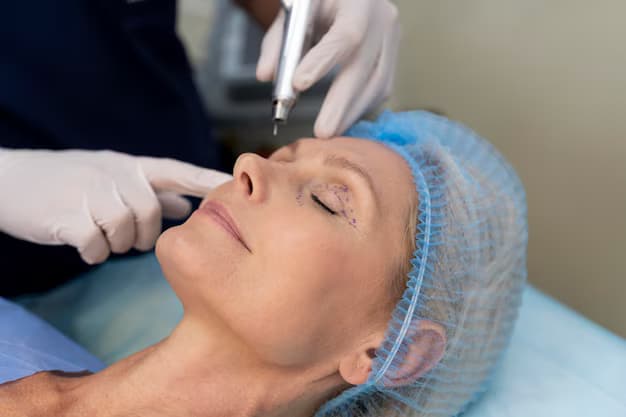Melasma is a common skin condition that manifests as brown or gray-brown patches, primarily on the face. It is often triggered by sun exposure, hormonal changes, or genetic predisposition, making it a prevalent concern, particularly among women. In Manchester, where the weather can be unpredictable, individuals seeking effective melasma treatment options are increasingly turning to a variety of innovative solutions. This article explores three proven methods that have garnered attention for their efficacy in treating melasma, allowing individuals to regain confidence in their skin.
Understanding Melasma and Its Causes
Before delving into the treatment options, it's essential to understand what melasma is and why it occurs. Melasma is characterized by hyperpigmentation, which arises when the skin produces excess melanin. This condition is often exacerbated by factors such as ultraviolet (UV) exposure, which is prevalent even on cloudy days. Hormonal influences, particularly during pregnancy or with the use of contraceptive pills, can also trigger melasma. Additionally, genetics play a significant role; individuals with a family history of melasma are more likely to develop it themselves.
As individuals in Manchester navigate their daily lives, the combination of environmental factors and lifestyle choices can contribute to the development of this condition. The emotional impact of melasma can be profound, affecting self-esteem and prompting many to seek effective treatment options. Fortunately, advancements in dermatological care provide several avenues for those looking to improve their skin's appearance.
1. Topical Treatments: The First Line of Defense
One of the most accessible and straightforward approaches to treating melasma involves the use of topical treatments. Dermatologists often recommend a regimen that includes ingredients known for their skin-lightening properties. Common components found in effective topical treatments include hydroquinone, tretinoin, and azelaic acid.
Hydroquinone is particularly notable for its ability to inhibit melanin production, making it a go-to solution for many dermatologists. However, it is crucial to use hydroquinone under the guidance of a professional, as prolonged use can lead to skin irritation or even a condition known as ochronosis, which causes a bluish-black discoloration of the skin.
Tretinoin, a derivative of Vitamin A, can also enhance skin cell turnover, aiding in the fading of hyperpigmented areas. Azelaic acid, derived from grains, is another effective option that not only lightens skin but also possesses anti-inflammatory properties, making it suitable for those with sensitive skin.
While topical treatments can yield significant improvements, the results may take several weeks to become noticeable. Therefore, individuals in Manchester should consult a dermatologist to create a tailored plan that addresses their specific skin type and melasma severity.
2. Chemical Peels: Revitalizing the Skin’s Surface
For those seeking more immediate results, chemical peels present a compelling option for melasma treatment. This procedure involves the application of a chemical solution to the skin, which exfoliates the outer layers and encourages new skin growth. There are various types of chemical peels, ranging from superficial to deep, depending on the desired outcome and the severity of the melasma.
Superficial peels, often made from glycolic or salicylic acid, can effectively treat mild cases of melasma. These peels work by removing the outermost layer of dead skin cells, revealing a fresher complexion underneath. For individuals with moderate to severe melasma, medium-depth peels, which penetrate more deeply into the skin, may be necessary. Trichloroacetic acid (TCA) is commonly used for this purpose and can provide more significant results.
Chemical peels not only help address pigmentation issues but also improve skin texture and tone, leading to a more youthful appearance. However, it's important for individuals to understand that the recovery time can vary. While some may experience minor redness and peeling for a few days, others may require a longer healing period. Therefore, consulting with a qualified professional in Manchester is essential to ensure a safe and effective peeling process.
3. Laser Treatments: Precision and Efficacy
In recent years, laser treatments have emerged as a highly effective option for treating melasma, particularly in cases that are resistant to other methods. Laser therapy works by targeting the melanin in the skin with focused beams of light. This precision allows for the treatment of specific areas without affecting the surrounding skin, minimizing the risk of complications.
There are several types of lasers used for melasma treatment, including fractional lasers and Q-switched lasers. Fractional lasers create micro-injuries in the skin, stimulating collagen production and promoting the growth of new, healthier skin. This option is particularly beneficial for individuals with textural irregularities accompanying their pigmentation issues.
On the other hand, Q-switched lasers are designed to target pigmented lesions directly. By delivering short bursts of energy, these lasers effectively break down melanin deposits, leading to a more even skin tone. The results from laser treatments can often be seen more rapidly compared to topical treatments or chemical peels, making them an attractive option for those looking for quicker improvements.
Despite the benefits, it's important for individuals to consult with a dermatologist experienced in laser treatments. Factors such as skin type, melasma severity, and individual response to treatment should all be taken into account to achieve the best outcomes.
Conclusion
In summary, melasma can be a challenging condition to manage, but individuals in Manchester have access to a variety of effective treatment options. From topical solutions to chemical peels and advanced laser therapies, each approach offers unique benefits that can help individuals regain their confidence and enjoy clearer skin. It is crucial for anyone dealing with melasma to seek guidance from a qualified dermatologist to determine the most suitable treatment plan tailored to their specific needs.
For those seeking professional expertise in melasma treatment in Manchester, Este Medical Group stands out as a reputable provider, equipped with the knowledge and technology to help individuals achieve their skincare goals. Embracing the right treatment can lead to not only improved skin appearance but also a renewed sense of self-confidence.





Comments